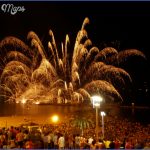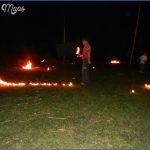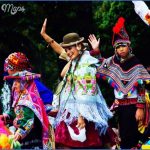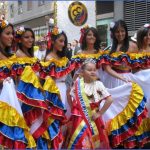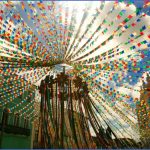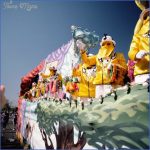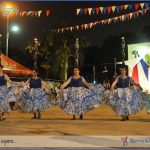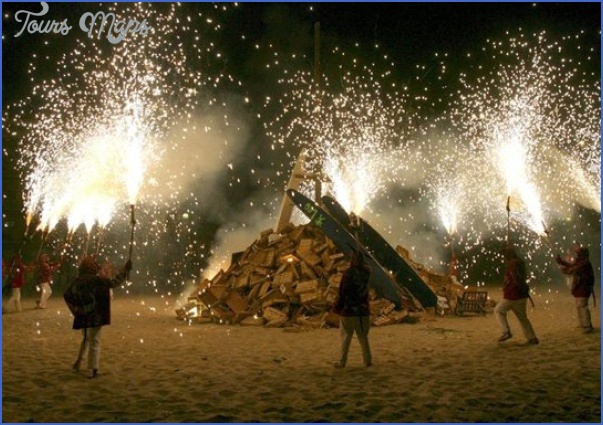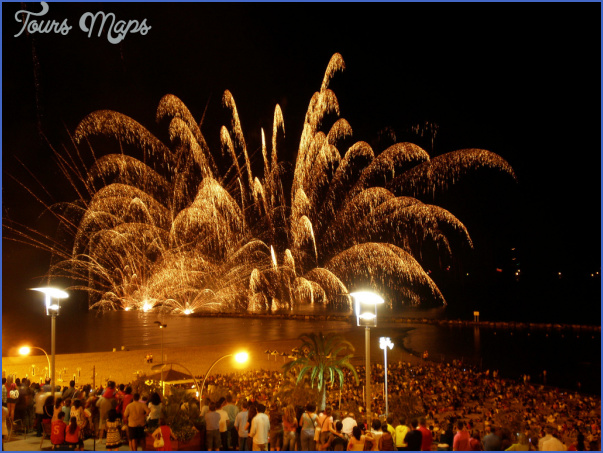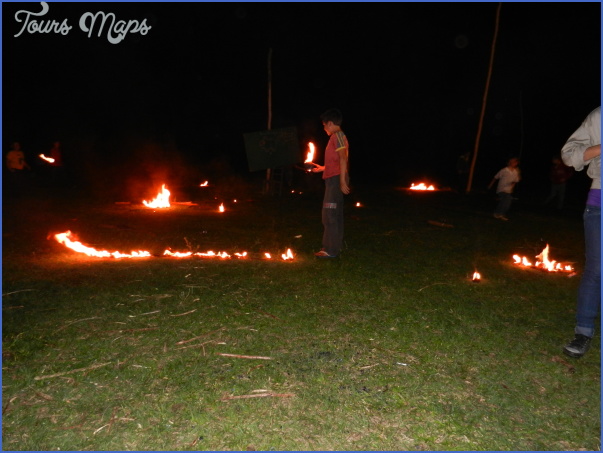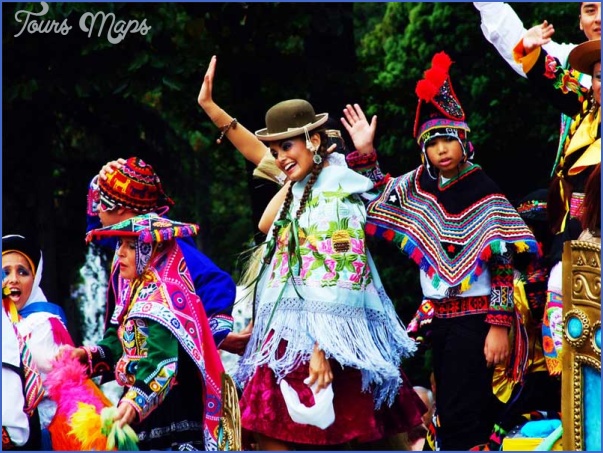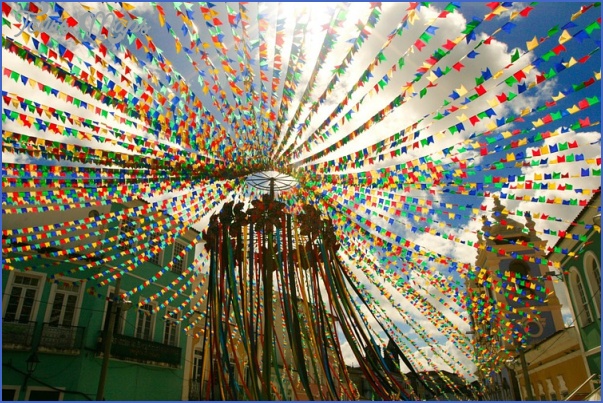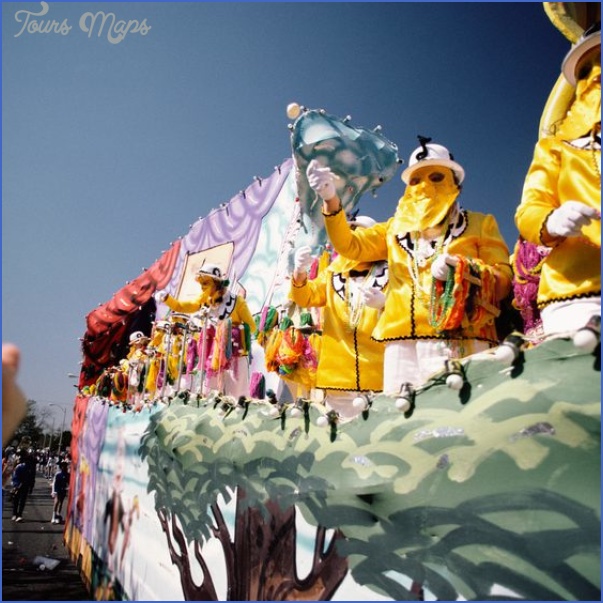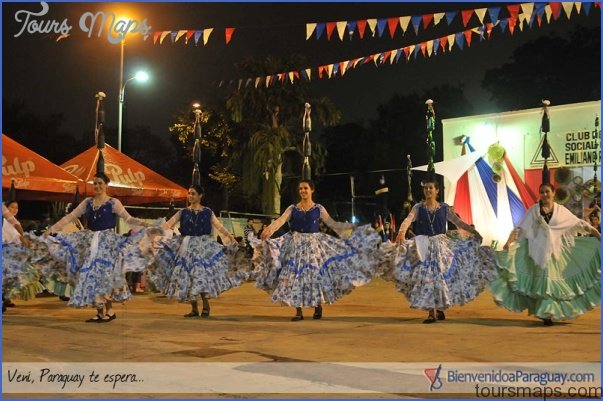The Festival of San Juan, held on June 24th, is celebrated throughout Paraguay, though nowhere else as energetically as in San Juan itself. During the festival, the streets of San Juan fill to the brim with cowboys and riders from the area’s estancias who parade to the Club 24 de junio (known as the polideportivo) There everyone gathers for equestrian showcases while onlookers cheer loudly and purchase meats from an enormous asado a la estaca.
One of the highlights of any San Juan celebration are the various games traditionally played. There are sack races (carrera vosa), competitions to climb a greased pole for a prize up top (yvyra syi), and a Paraguayan take on a pinata using a clay water jug filled with prizes (kambuchi jejoka). The
most popular games of San Juan are those involving fire. To play pelota tata (fire ball) a ball made of rags is soaked in kerosene, set alight and kicked around like a soccer ball. For the toro candil someone dons a huge headpiece with flaming horns and runs around pretending to be a bull. Usually he prefers to run through the crowd sending groups of teenage girls running in all directions. The dramatic highlight is the tata ari jehasa or tatapy-i ari yejhasa which means “walking over coals.” Hot coals are spread out to create a path about five meters long. As onlookers watch with bated breath the brave walk down the path slowly, all the while calling out ” Viva San JuanI” sure that their faith in San Juan will protect them. The Festival of San Juan came to Paraguay through Europe where the date falls around the same time as the summer solstice. Some speculate that pagan solstice rituals are the reason for the popularity of fire during San Juan. Of course in Paraguay, San Juan takes place during the cold days of winter so fire is a welcome addition.
San Juan Dice Que Si or How to Predict Your Future Love Life
“San Juan dice que si, San Juan dice que no” (San Juan says yes, San Juan says no) is a phrase you’ll hear readily during the month of June. This is in reference to a number of San Juan games played by women to fortell their future love lives. Will San Jan will say “yes” or “no” to their desire to find a husband in the coming year? The games are most fun when played with a large group of women and are the rural Paraguayan equivalent of a “Sex and the City” marathon. Some examples:
– A chicken is kept without food for a whole day before being spun around in the middle of a circle of women, each with a mound of corn at her feet. The woman whose corn the chicken chooses to peck at first will be the first of the group to get married.
– Women take turns picking a fruit from a lemon tree while blindfolded. The degree of ripeness of the fruit will determine the age of their future husband. Green and unripe? She’ll be marrying a young guy. Old and mushy? Time to prepare for a geriatric husband.
– Scissors, a rosary, keys and a ring are placed on a table or tray and covered with a cloth. Women take turns closing their eyes and reaching for an object, each symbolizing their future. Scissors foretell a career as a seamstress. The key indicates a future housewife (or, in another variation, a property owner). The ring symbolizes marriage and anyone who went for the rosary is headed to the convent (or will simply end up an old maid).
Festival del Batiburrillo, Siriki y el Chorizo Misionero
Held in mid-January this festival is the perfect time to try the gastronomic specialties of Misiones. Start off with a cocktail called siriki made with soda water, cana (unaged rum) and limon sutil, a lemon whose flavor is subtle, as its name indicates. Then serve yourself some batiburrillo, a stew made of onions, green peppers and internal organs (usually of sheep but sometimes cow as well) all simmered in a heavy cast iron pot. Another festival specialty is the chorizo misionero (also known as the chorizo sanjuanino) which is a sausage made of both pork and beef. Both siriki and batiburrillo are said to have been introduced to the area by a Spanish immigrant named Sebastian Sasiam. In addition to these dishes the festival features other classics such as payagua mascada, pastel mandio (both made out of mandioca) and, of course, sopa paraguaya.
San Juan Festival Paraguay Photo Gallery
Maybe You Like Them Too
- The Best Cities To Visit in The World
- World’s 10 Best Places To Visit
- Coolest Countries in the World to Visit
- Travel to Santorini, Greece
- Map of Barbados – Holiday in Barbados


